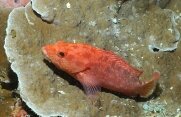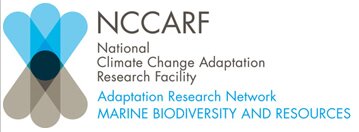|
Integration Theme

Mission
To enhance the adaptive capacity of Australia’s marine biodiversity and resources to climate change risks through the effective integration of our knowledge of conditions, responses and interactions involving marine biodiversity, living marine resources, socioeconomic issues, policy, management and governance.
The degree of adaptive capacity present in social or ecological systems is central to their resilience. Resilience means having the ability to bounce back from disturbance, to reorganize and regenerate systems and structures in order to adapt to new situations, and the capacity to transform them if necessary. A central concern for resilient systems is the quality of the connections and the information flowing between different components and subsystems. Many environmental and resource management issues arise from various failures of connection, coordination and communication, whether between levels of government or among individual agencies, at the science/policy interface, or between the physical and social sciences. Good environmental governance, policy and management results from inclusion of all relevant stakeholders’ contributions, combining knowledge from different sources, and when feedback signals are routinely incorporated into planning and action.
The role of the Integration theme is to facilitate communication, collaboration and cooperation among the Network’s diverse paradigms of biophysical, social, economic, and policy knowledge and practice; to facilitate stakeholder input into adaptation strategy development for the marine system through national workshops; and to facilitate the communication of learnings to the policy sphere and their incorporation into adaptation policy and planning.
In the first of three phases of activity, the Integration group will lead an initiative to determine the current resilience status of the marine social-ecological system. In the second activity phase, the Integration theme will be concerned to chart the potential for abrupt change in the marine social-ecological system and particularly identifying the conditions under which resilience may be lost. In the third phase, the focus is on enhancing the resilience of the marine system through building adaptive capacity and identifying pathways to adaptation implementation. < Back
|
